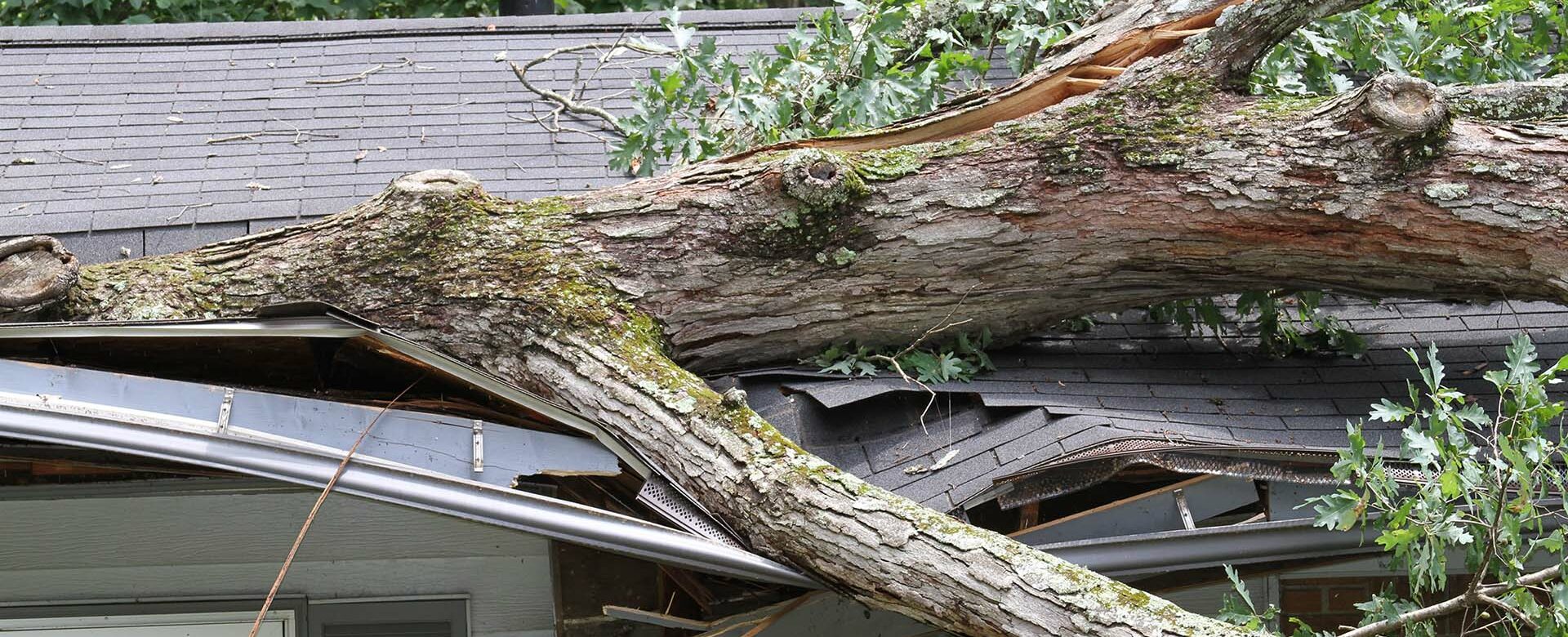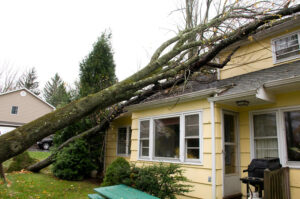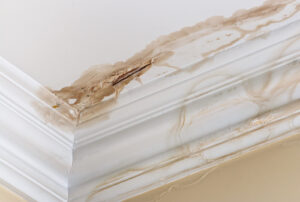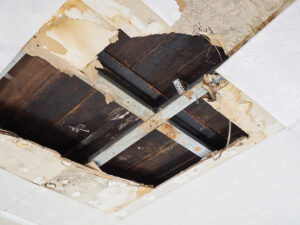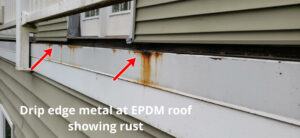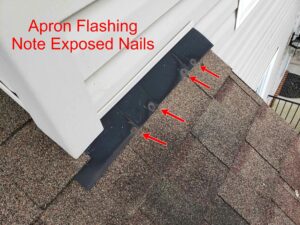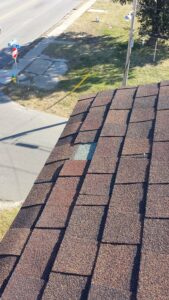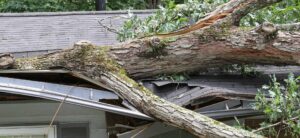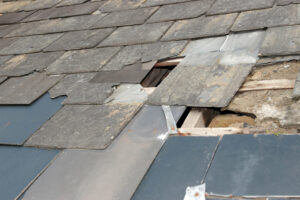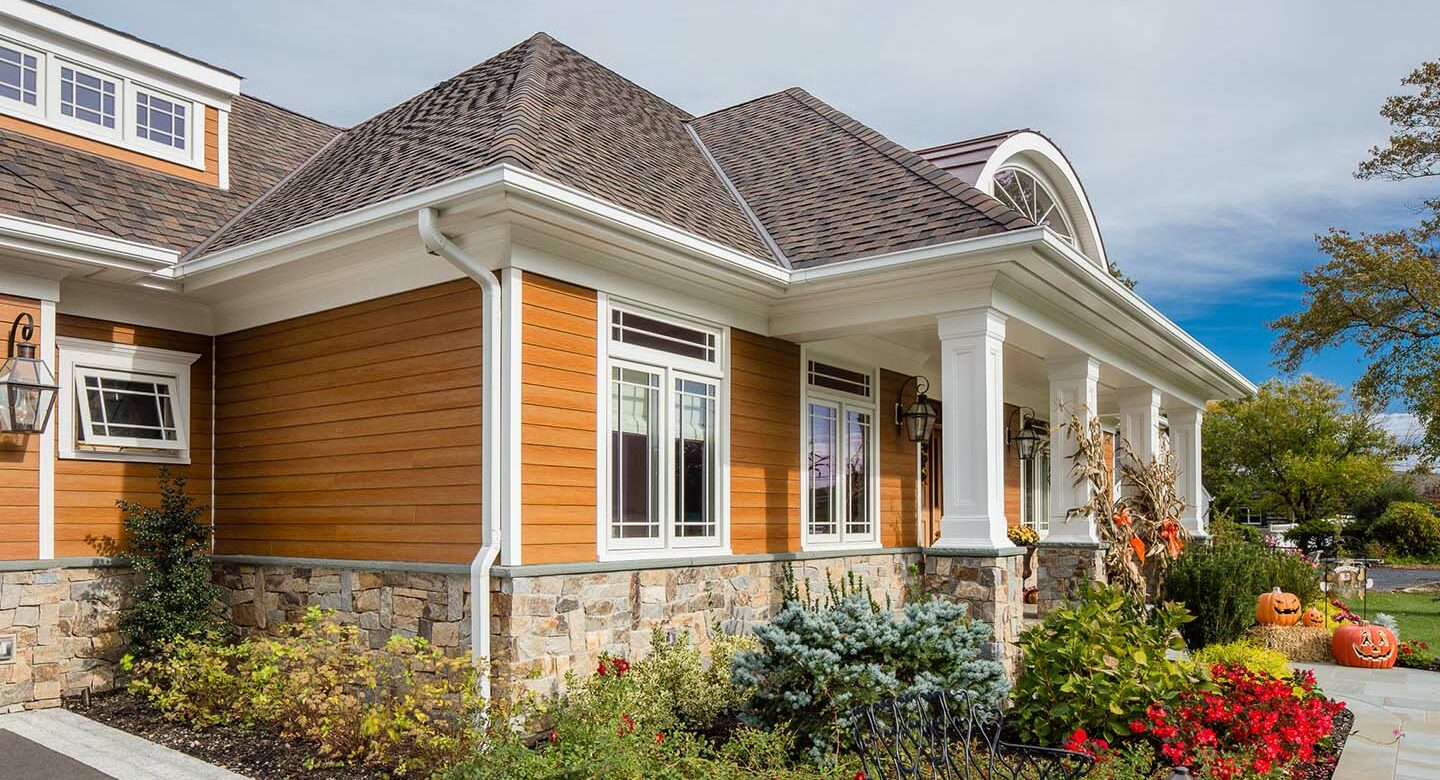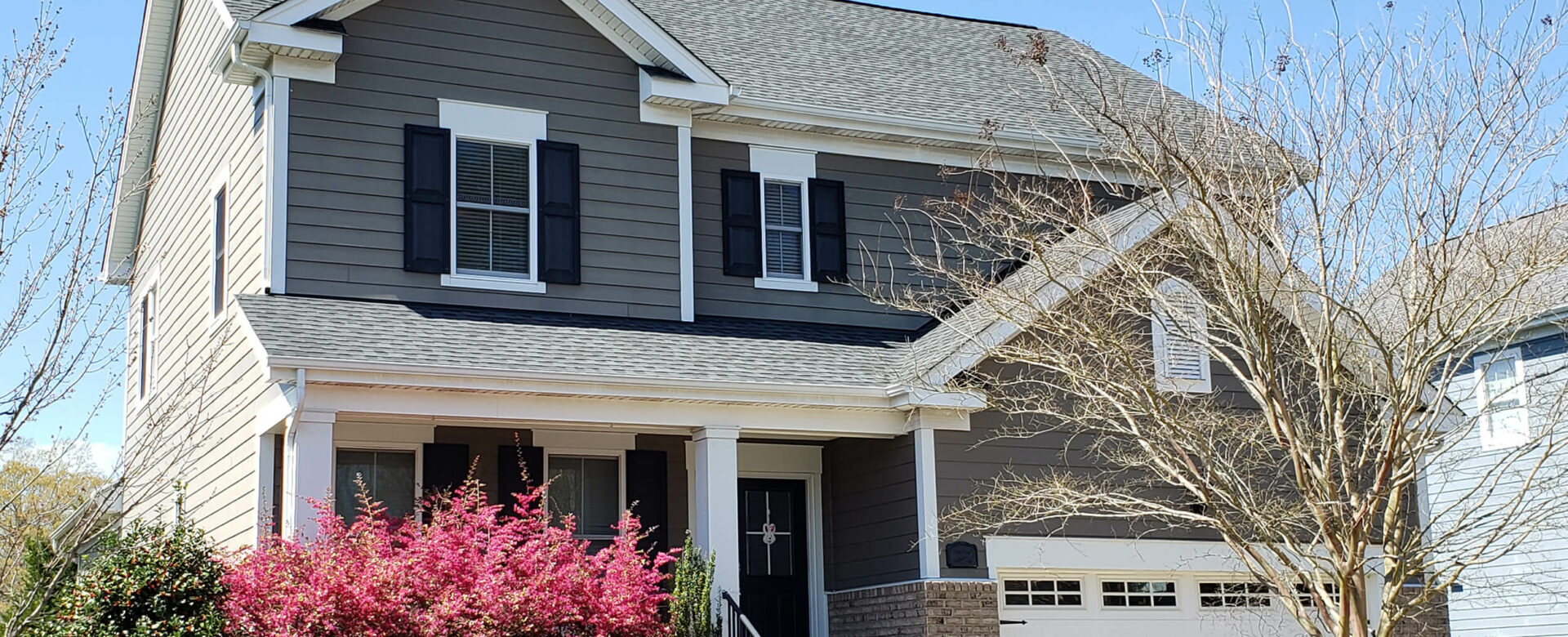If you watch the local news or even just tune in for the weather forecast, you know that we’ve reached peak hurricane season and that the tropics have been very active thus far.
Fortunately, the Mid-Atlantic coast including Southeast Virginia and Hampton Roads have been spared from any direct hits. But there are still two more months of hurricane season, and now is the time to be prepared for anything that may come our way. Not to mention that as soon as hurricane season is over, nor’easter and winter storm season will be upon us.
When it comes to your home and your home’s roof, there are plenty of things you can do in advance to avoid certain types of damage during storm season. But there are some things you simply can’t prevent from happening, and being responsive after the fact is the best you can do. Here are a few common types of roof damage to keep an eye out for as we weather hurricane season this fall.
Tree Damage
Tree damage isn’t always as obvious as an entire tree crashing through your roof and into your home. Some tree damage can go unnoticed until it causes interior damage – days, weeks or even months later. A stray limb with enough wind and force behind it can cause shingles to fly off, roof sheathing and decking to be pierced and make your roof vulnerable to leaks.
Tree damage can even come from overhanging branches that simply rub along shingles and cause unwanted wear and tear. It’s always a good idea to keep low hanging or potentially destructive branches trimmed back from the roofline where possible.
After a storm, visually inspect your roof as well as you can from the ground to see if any limbs, branches or even leaf buildups can be seen. If so, they should be removed immediately and the roof should be inspected to ensure no damage was caused. If damage was caused, a roofing contractor will typically be able to do a repair confined to that area without a major overhaul of your roof.
Loose or Missing Shingles
Perhaps the most common damage after a storm is loose or missing shingles. While it may not seem like a big deal if one or two shingles come off, their absence makes the shingles all around that area more susceptible to blowing off, and jeopardizes the roof sheathing beneath. Depending on when and how your roof was installed, the material manufacturer or installer may have specific warranties to cover shingle replacement. In any case, the shingles should be replaced as soon as possible to prevent further damage.
Loose or Missing Flashing
Flashing is the metal sheets that are used in roofing around joints in a roofline and around other roof penetrations such as pipes, chimneys and vents. They play an important role in protecting your roof decking and if jeopardized, major interior damage can occur. Loose flashing can actually cause quite a bit of damage to the rest of your roof, tearing up or removing shingles around it, especially in a wind event.
Missing flashing can allow water intrusion and will also make it easier for nearby shingles to be blown away. Some flashing you may be able to visually inspect from the ground, but if you have reason to believe that flashing may be loose in spots that you’re not able to inspect from the ground, call in a qualified roofing contractor to inspect for you – don’t risk causing damage to yourself to find damage on your roof.
Clogged or Broken Gutters
Particularly if you live near a lot of trees, storms can cause debris to fly off of nearby vegetation that can eventually land right into your gutters. This debris will cause your gutters to work less effectively, which means water will build up and potentially seep up underneath your shingles and sheathing, causing damage to the roof decking below, often seen as dark water spots in the corners and along the top of the walls in your home. Ideally, have your gutters cleaned before storm season so that they are cleared and ready to carry all that stormwater away from your home. But it’s also a good idea to check on them after a storm and make sure nothing has caused any clogs or damage to the gutter itself.
Broken or loose gutters are also common after a storm, and if you see evidence of that, call in a licensed contractor to fix the problem before the next rain event occurs. Broken gutters can funnel water into places it should not go including near your home’s foundation and onto walls and windows, causing even more damage. If you don’t have gutters, or your home’s gutters need to be replaced, you may also want to consider installing a Rapid Rain ™ gutter system which is designed for high capacity that comes with living in a storm prone area.
Contact a Local Roofing Contractor
This hurricane season, if your roof sustains any damage during a storm, contact Andrews Roofing. We are locally owned and operated and we are highly experienced in the issues that are unique to the Tidewater region. We know what to look out for and how to best fix and repair an issue to withstand future weather events.
